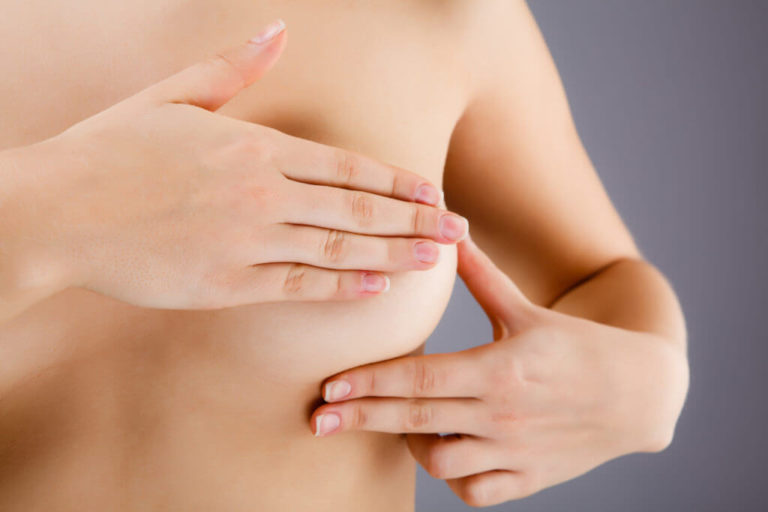Breast reduction surgery, also known as reduction mammoplasty, is a transformative procedure that can alleviate discomfort and improve your overall quality of life. However, like any surgical procedure, breast reduction surgery comes with a recovery period, during which swelling is a common concern. Managing and reducing swelling is crucial for a smooth recovery and achieving the best possible results. In this detailed blog post, we’ll explore effective strategies to reduce swelling after a breast reduction, discuss the breast reduction in Dubai, and highlight the best plastic surgeons in Dubai, including the renowned Perfect Doctors Clinic.
Understanding Swelling After Breast Reduction Surgery
What Causes Swelling?
Swelling is a natural part of the healing process following any surgical procedure, including breast reduction. It occurs as your body responds to the trauma of surgery by sending extra blood and fluids to the area to aid in healing. While this is a normal response, excessive swelling can cause discomfort and delay your recovery.
- Impact: Understanding that swelling is a normal part of the healing process can help you manage expectations and focus on strategies to reduce it effectively.
How Long Does Swelling Last?
Swelling typically peaks within the first few days after surgery and gradually subsides over the following weeks. However, it can take several months for the swelling to completely resolve and for your final results to become fully apparent.
- Impact: Being patient and following your surgeon’s aftercare instructions can help minimize swelling and ensure a smoother recovery.
Tips to Reduce Swelling After Breast Reduction Surgery
1. Follow Post-Operative Care Instructions
Importance of Aftercare
Your surgeon will provide detailed post-operative care instructions tailored to your specific needs. Following these guidelines closely is the most effective way to reduce swelling and promote healing.
- Impact: Adhering to your surgeon’s instructions helps prevent complications and reduces the risk of excessive swelling.
Key Aftercare Tips
- Wear Compression Garments: Your surgeon will likely recommend wearing a surgical bra or compression garment to support your breasts and reduce swelling.
- Keep the Area Clean and Dry: Proper wound care is essential to prevent infection, which can exacerbate swelling.
- Attend Follow-Up Appointments: Regular follow-up visits allow your surgeon to monitor your progress and address any concerns, including swelling.
2. Use Cold Compresses
Benefits of Cold Therapy
Applying cold compresses to the surgical area can help reduce swelling by constricting blood vessels and reducing fluid accumulation. Cold therapy is most effective during the first 48 hours after surgery.
- Impact: Cold compresses can provide immediate relief from swelling and discomfort, making your recovery more comfortable.
How to Use Cold Compresses
- Wrap Ice Packs in a Cloth: Never apply ice directly to your skin. Instead, wrap an ice pack or a bag of frozen peas in a soft cloth before applying it to your breasts.
- Apply for 20 Minutes: Use the cold compress for 20 minutes at a time, with breaks in between to avoid frostbite or skin irritation.
3. Elevate Your Upper Body
The Role of Elevation
Keeping your upper body elevated while resting can help reduce swelling by improving blood circulation and preventing fluid from pooling in the surgical area.
- Impact: Elevating your upper body reduces pressure on the surgical area, leading to less swelling and discomfort.
How to Elevate Properly
- Use Extra Pillows: When lying down, prop yourself up with extra pillows so that your upper body is elevated at a 30 to 45-degree angle.
- Consider a Recliner: Sleeping in a recliner during the first few days post-surgery can help maintain the necessary elevation and support.
4. Stay Hydrated
Importance of Hydration
Drinking plenty of water is essential for reducing swelling and supporting your body’s natural healing processes. Proper hydration helps flush out excess fluids and toxins, reducing the likelihood of prolonged swelling.
- Impact: Staying hydrated aids in overall recovery and helps manage post-surgical swelling effectively.
Hydration Tips
- Drink 8-10 Glasses of Water Daily: Aim to drink at least 8-10 glasses of water a day to keep your body hydrated.
- Limit Caffeine and Alcohol: Both caffeine and alcohol can dehydrate your body, so it’s best to limit or avoid these beverages during your recovery.
5. Limit Salt Intake
The Link Between Salt and Swelling
Excessive salt intake can cause your body to retain water, leading to increased swelling. Reducing your salt consumption during the recovery period can help minimize fluid retention and swelling.
- Impact: Managing your diet and limiting salt intake can have a significant effect on reducing post-surgical swelling.
Tips for Reducing Salt
- Avoid Processed Foods: Processed foods are often high in sodium, so it’s best to stick to fresh, whole foods during your recovery.
- Use Herbs and Spices: Instead of salt, use herbs and spices to flavor your food, which can help you maintain a low-sodium diet.
6. Take Prescribed Medications
Medication Management
Your surgeon may prescribe anti-inflammatory medications or recommend over-the-counter options to help manage swelling and discomfort. It’s important to take these medications as directed.
- Impact: Proper medication management can significantly reduce swelling and make your recovery more comfortable.
Follow Dosage Instructions
- Avoid Overuse: While it’s important to manage swelling, overusing medications can lead to other complications. Always follow your surgeon’s dosage instructions carefully.
7. Gentle Movement and Light Exercise
The Role of Movement
While it’s important to rest after surgery, gentle movement and light exercise can help improve circulation and reduce swelling. Walking short distances a few times a day can prevent blood clots and promote lymphatic drainage.
- Impact: Incorporating light activity into your routine aids in reducing swelling and accelerates the healing process.
What to Avoid
- Strenuous Activities: Avoid strenuous activities, heavy lifting, and vigorous exercise for at least 4-6 weeks post-surgery or as directed by your surgeon.
- Listen to Your Body: If you experience discomfort or increased swelling, stop the activity and consult your surgeon.
Breast Reduction Cost in Dubai
Understanding Reduction Mammoplasty Cost in Dubai
The breast reduction cost in dubai varies depending on several factors, including the surgeon’s expertise, the complexity of the procedure, and the use of advanced techniques. On average, the reduction mammoplasty cost in Dubai ranges from AED 29,999 to AED 75,000. This price range typically includes:
- Consultation Fees: Initial and follow-up consultations with the surgeon.
- Surgical Fees: The cost of the surgery itself, including the surgeon’s fees.
- Anesthesia Fees: Fees for the anesthesia administered during the surgery.
- Hospital or Clinic Fees: Costs associated with the use of the surgical facility.
- Post-Operative Care: Follow-up visits, medications, and any necessary post-surgery garments.
Additional Costs to Consider
- Pre-Surgery Tests: Blood tests, mammograms, or other diagnostic tests that may be required before surgery.
- Post-Surgery Garments: Special bras or compression garments needed during the recovery period.
- Travel and Accommodation: If you are traveling to Dubai for surgery, consider the costs of travel and accommodation.
Finding the Best Plastic Surgeons in Dubai
What to Look For
When searching for the best plastic surgeons in Dubai, consider the following criteria:
- Board Certification: Ensure the surgeon is board-certified in plastic surgery.
- Experience with Breast Reductions: Look for a surgeon with extensive experience in performing breast reduction surgeries.
- Patient Reviews: Read reviews and testimonials from previous patients to gauge satisfaction and outcomes.
- Before and After Photos: Review the surgeon’s portfolio of before and after photos to assess their work.
- Comprehensive Consultation: Choose a surgeon who offers a thorough consultation, where you can discuss your goals, ask questions, and receive personalized advice.
Perfect Doctors Clinic: Your Ideal Choice
Perfect Doctors Clinic in Dubai is renowned for its exceptional care and highly skilled surgeons. Here’s why you should consider Perfect Doctors Clinic for your breast reduction surgery:
- Expert Surgeons: The clinic boasts some of the best plastic surgeons in Dubai, known for their expertise and successful outcomes in breast reduction procedures.
- State-of-the-Art Facilities: Equipped with the latest technology, the clinic ensures the highest standards of safety and comfort.
- Comprehensive Care: From initial consultation to post-operative care, Perfect Doctors Clinic provides personalized and comprehensive support throughout your journey.
Conclusion
Reducing swelling after breast reduction surgery is a vital part of your recovery process. By following post-operative care instructions, using cold compresses, elevating your upper body, staying hydrated, and managing your diet, you can effectively minimize swelling and ensure a smooth recovery.


